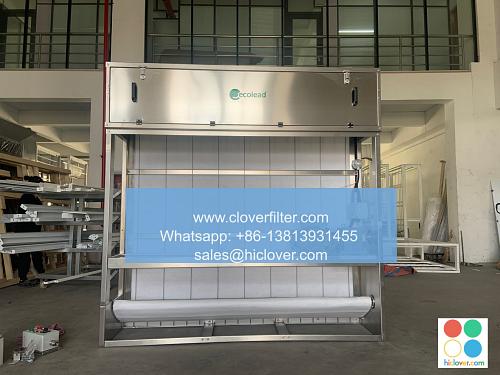The Importance of Air Filter Papers in Improving Indoor Air Quality

As the world grapples with the challenges of air pollution and its impact on human health, the significance of indoor air quality (IAQ) has become increasingly evident. One of the most effective ways to improve IAQ is by using air filter papers in heating, ventilation, and air conditioning (HVAC) systems. In this article, we will explore the importance of air filter papers in improving indoor air quality and highlight their various application areas.
What are Air Filter Papers?
Air filter papers are specially designed filter media that are used to capture airborne particles, gases, and odors from the air. They are typically made of fibrous materials such as paper, fiberglass, or synthetic fibers and are designed to have a high surface area to capture particles efficiently.
Benefits of Air Filter Papers
The use of air filter papers in HVAC systems offers several benefits, including:
* Improved indoor air quality: By capturing airborne particles and gases, air filter papers can significantly improve the quality of indoor air, reducing the risk of respiratory problems and other health issues.
* Increased energy efficiency: By reducing the amount of airborne particles and debris in the air, air filter papers can help improve the efficiency of HVAC systems, reducing energy consumption and costs.
* Extended equipment life: By capturing particles and debris, air filter papers can help extend the life of HVAC equipment, reducing maintenance and repair costs.
Application Areas of Air Filter Papers
Air filter papers have a wide range of applications in various industries, including:
* Residential buildings: Air filter papers are commonly used in residential HVAC systems to improve indoor air quality and reduce energy consumption.
* Commercial buildings: Air filter papers are used in commercial HVAC systems to improve indoor air quality and reduce energy consumption, while also helping to maintain a healthy and productive work environment.
* Industrial settings: Air filter papers are used in industrial settings to capture hazardous particles and gases, improving worker safety and reducing the risk of occupational diseases.
* Aerospace and automotive industries: Air filter papers are used in the aerospace and automotive industries to capture particles and gases in aircraft cabins and vehicle interiors, improving indoor air quality and reducing the risk of health problems.
Types of Air Filter Papers
There are several types of air filter papers available, each with its own unique characteristics and applications. Some of the most common types of air filter papers include:
* Activated carbon air filter papers: These papers are designed to capture gases and odors from the air, improving indoor air quality and reducing the risk of health problems.
* HEPA air filter papers: These papers are designed to capture 99.97% of particles as small as 0.3 microns, making them ideal for use in hospitals, laboratories, and other high-sensitivity areas.
* Electrostatic air filter papers: These papers are designed to capture particles and gases using electrostatic charges, making them ideal for use in commercial and industrial settings.
Conclusion
In conclusion, air filter papers play a critical role in improving indoor air quality and reducing the risk of health problems. With their wide range of applications in various industries, air filter papers are an essential component of any indoor air quality management strategy. By choosing the right type of air filter paper for your specific needs, you can help improve the quality of indoor air, reduce energy consumption, and promote a healthy and productive environment. It seems like you didn’t provide a prompt or question for me to respond to. Please go ahead and ask me anything, and I’ll do my best to provide a helpful and direct answer.

